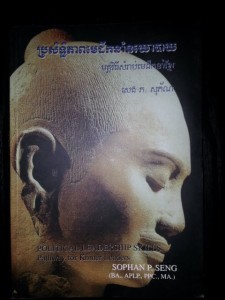Op-Ed: Asia Times
 Cambodian politics reached a new boiling point with the arrest of the opposition leader last week. Kem Sokha was handcuffed in the middle of the night in his house and accused of “treason” by the government.
Cambodian politics reached a new boiling point with the arrest of the opposition leader last week. Kem Sokha was handcuffed in the middle of the night in his house and accused of “treason” by the government.
Foreign governments have reacted to the arrest, and members of the opposition have called for them to take action against the Cambodian government. The questions now are these: What actions should the West take? And how tough should these actions be?
Political conditions in Cambodia have worsened in recent years, most notably after local-government elections in June this year. The 2013 national elections and the June 2017 local-government elections threatened the Cambodian People’s Party (CPP), which has been in power since the fall of the Khmer Rouge regime in 1979.
Among a range of actions to weaken the opposition, in July this year, despite a boycott by the opposition, the CPP passed an amendment to the Law on Political Parties. The amendment allowed the government to ban convicted political leaders from running for political office, while the parties run by them would be disbanded altogether. Sam Rainsy, the former opposition leader, had to resign from his Cambodian National Rescue Party (CNRP) to save it from being dissolved.
Last week, the CPP regime jailed Kem Sokha, Sam Rainsy’s successor, and charged him with colluding with a foreign power to topple the government. The accusation appears to be based mainly on a speech Kem Sokha made in 2013 to his supporters in Australia. At that time, he had boasted of the support he receives from Americans to advance his political career and unseat the CPP.
His arrest followed the government’s expulsion of a US-based non-governmental organization and the closures of The Cambodia Daily and local radio stations linked to Radio Free Asia and the Voice of America.
A number of foreign governments reacted promptly to the arrest. Australia and Japan expressed their concerns about the deteriorating political conditions in Cambodia and suggested that the CCP-led regime maintain a political environment favorable for a free and fair national election, to be held next July.
The US and the European Union went further, calling for the immediate release of Kem Sokha, but stopped short of announcing punitive measures if the government ignored their call.
China, however, opted not to pressure the Cambodian government and promised to stand by its side.
US Ambassador to Cambodia William Heidt speaks during a press conference at the US Embassy in Phnom Penh on September 12, 2017, sharply denying ‘extraordinary accusations’ that the US was involved in a plot to overthrown the government.
Members of the opposition are calling for the international community to take tough action against the Cambodian government, but have fallen short of prescribing specific actions. Nevertheless, it is customary for the opposition to seek international intervention when their political fortunes are under threat from the CPP-led government. Sam Rainsy called on the West to cut off aid and impose economic sanctions on Cambodia on many occasions in the past. Similar appealshave been made now in the aftermath of the arrest of Kem Sokha.
The question now is this: Should the West impose sanctions on Cambodia to restore political order?
Some countries, such as Japan, are certainly facing a dilemma, and their policy options are limited. The West and for that matter Cambodian citizens have to make a hard choice between accepting the status quo and potentially pushing Cambodia into China’s complete sphere of influence and wiping out the gains made in the past two decades in terms of economic development and democratization.
Slashing aid and imposing economic sanctions would definitely undermine Western countries’ past efforts to contribute to the development of Cambodia, which have been significant over the past two decades. They contributed to peace-building processes that culminated in the October 1991 Paris Peace Accords. They aided the reconstruction of postwar Cambodia, channeling significant development assistance to the country. (Western aid accounted for more than 60% of the total in 2015.)
The United States’ and the EU’s special preferential trade agreements helped Cambodia develop its export sector, particularly the garment and footwear sector and related industries, which account for about 80% of the country’s exports.
The US extended Most Favored Nation status to Cambodia in 1996 and the Generalized System of Preferences last year. The EU extended its Everything but Arms scheme to the country in the early 2000s. Cambodia exported more than 60% of its products to the US and European markets in 2016.
Cambodia has also benefited from the China-ASEAN Free Trade Agreement, but its exports to China accounted for only 6% of the total last year.
Garment workers walk in front of factories in Phnom Penh in October 2015 after government promises of wage increases fell short of their demands.
Thanks in part to Western assistance, the Cambodian economy has grown extraordinarily well over the past decades, averaging 7% per year since 1993 and helping poverty to fall more than 1 percentage point per year on average since 2003. Cambodia graduated from the status of a Least Developed Country in 2015.
In the event of Western economic sanctions, parts of the Cambodian export sector are most likely to collapse. In the short to medium terms, Cambodia is unlikely to be able to count on China to fill the vacuum left by the US and the EU, given that the two Asian countries are competitors in the global garment and footwear market.



